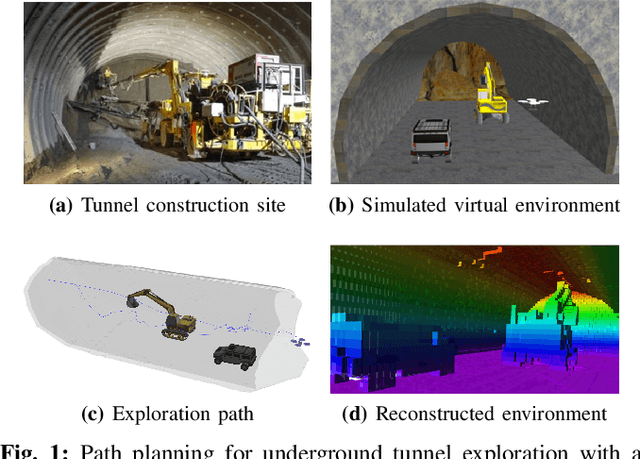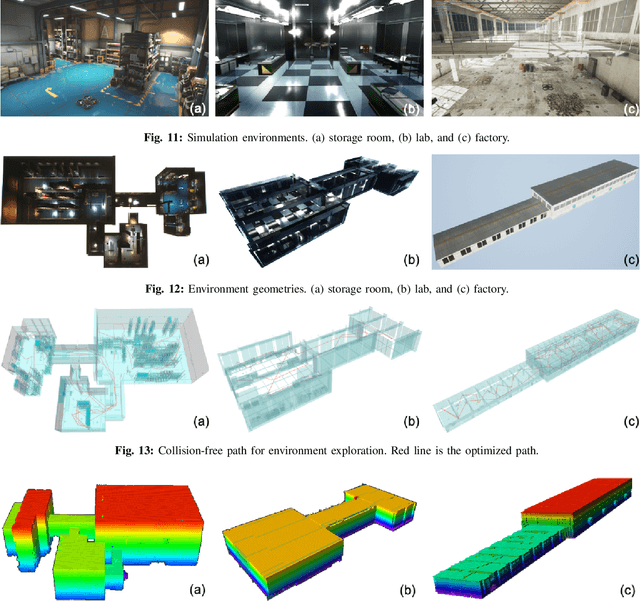Frontier-based Automatic-differentiable Information Gain Measure for Robotic Exploration of Unknown 3D Environments
Paper and Code
Nov 10, 2020



The path planning problem for autonomous exploration of an unknown region by a robotic agent typically employs frontier-based or information-theoretic heuristics. Frontier-based heuristics typically evaluate the information gain of a viewpoint by the number of visible frontier voxels, which is a discrete measure that can only be optimized by sampling. On the other hand, information-theoretic heuristics compute information gain as the mutual information between the map and the sensor's measurement. Although the gradient of such measures can be computed, the computation involves costly numerical differentiation. In this work, we add a novel fuzzy logic filter in the counting of visible frontier voxels surrounding a viewpoint, which allows the gradient of the information gain with respect to the viewpoint to be efficiently computed using automatic differentiation. This enables us to simultaneously optimize information gain with other differentiable quality measures such as path length. Using multiple simulation environments, we demonstrate that the proposed gradient-based optimization method consistently improves the information gain and other quality measures of exploration paths.
 Add to Chrome
Add to Chrome Add to Firefox
Add to Firefox Add to Edge
Add to Edge